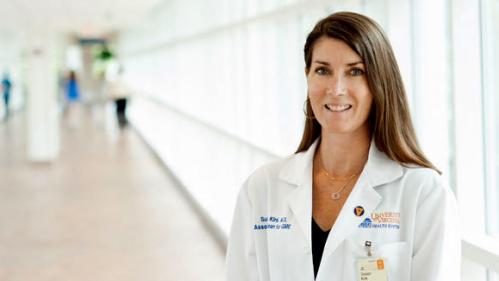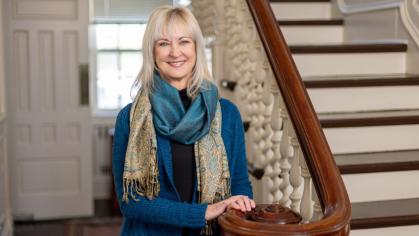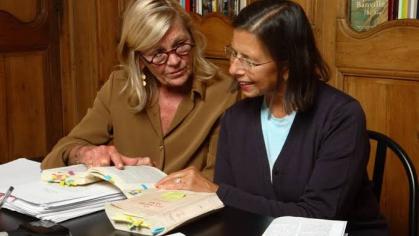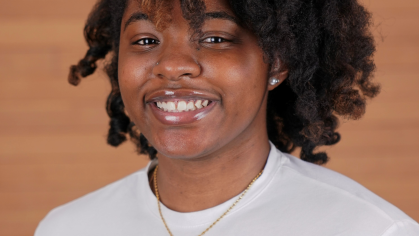For Dr. Susan Kirk DC’83, an endocrinologist and associate dean of graduate medical education at the University of Virginia Health System, teaching the next generation of medical professionals is a critical part of her work—a task that has become more complex with the onset of COVID-19.
Dr. Kirk splits her time between patient care and administrative duties. Her clinical work as an endocrinologist focuses on both type one diabetes in pregnant patients as well as care for transgender patients. As an administrator of graduate medical education, she also oversees every aspect of programming for the University’s 820 medical residents and fellows.
“I didn’t always think I’d become a part of the education aspect of medicine, I initially pictured myself going back to my hometown, setting up a clinic, and seeing patients like a traditional doctor,” said Dr. Kirk. “It wasn’t until I was a medical resident myself, learning directly from mentors about the skills needed to actually take care of patients, that I started to understand the importance of going into clinical teaching. People are so busy, but when someone actually stops to teach you something, you get a lot in return.”
In the fall, Dr. Kirk returned to Douglass virtually to discuss the way medical school has evolved for students during the pandemic and how her administration has adapted to deal with the changes.
“The issue, especially when trying to plan for graduate school, is that the situation changes every week. We haven’t yet reached a steady stage where we can definitely say how we will handle it,” she said. “We’ve learned that we have to be flexible.”
The pandemic has also changed the way that residency leaders consider student circumstances.
“Another really important thing is that this situation has shown a light on the disparities that exist in our country,” she said. “There are students who don’t have equal access to technology, among other disparities that make remote learning more difficult. What we’ve learned as administrators and educators is that you cannot assume that everyone has the same resources. If we want to be good at what we do, we have to explore what challenges people might face and address them.”
Disparities in medicine also fall along gendered lines. While progress has been made, women in medical leadership roles are far behind their male peers.
“It doesn’t make sense numerically,” explains Dr. Kirk. “The number of women entering the field as med students or residents is at least equal or more to men. Yet further along up the pipeline, the numbers drop off. When you look at promotions and pay equity, women are below their male peers too, especially for women doctors of color. We have an enormous amount of work to do.”
Dr. Kirk’s passion for hands-on, personalized learning reflects her own experience at Douglass. A biology major during her time at the College, Dr. Kirk was a member of the inaugural class of the Scholar’s Program, a small cohort of Douglass students who studied together and pursued independent research. Dr. Kirk carries foundational memories of the experience with her to this day.
“That program really allowed us to gain our voices and be immersed in a wide range of topics that, especially as a pre-med major, I wouldn’t have otherwise experienced,” she said. “Some of those classes taught us to think differently, in a way that maybe a big science class couldn’t. That was an experience I have carried with me through my whole career.”
The College would like to thank Dr. Kirk for returning to Douglass to share her valuable expertise with our community.



